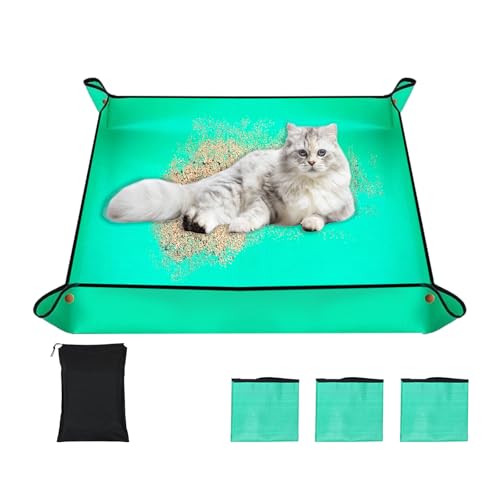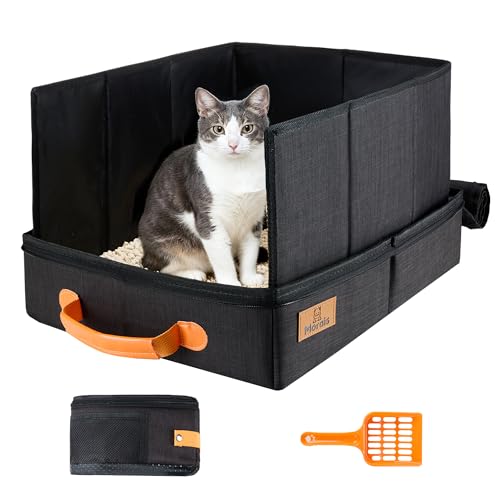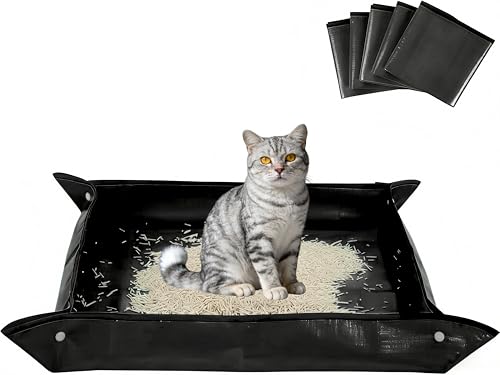Reasons why cats pee outside the litter box
If you’ve ever experienced the frustrating surprise of finding your backpack soaked in cat pee, you’re not alone. Many cat owners have encountered this unpleasant situation. But why do cats choose backpacks, of all places, as their personal litter box? Let’s delve into the possible reasons behind this behavior.
1. Territorial Marking
Cats are natural born explorers, and they have a strong instinct to mark their territory. By urine marking, they communicate to other cats that the space is already claimed. Your backpack may become a target because it carries your scent, making it an attractive spot for your cat to claim as their own.
2. Stress or Anxiety
Cats can be sensitive creatures, and changes in their environment can cause stress or anxiety. Moving to a new home, the addition of a new pet in the household, or even rearranging furniture can trigger this behavior. Peeing on your backpack may be your cat’s way of coping with their emotions or trying to establish a sense of security.
3. Medical Issues
Sometimes, peeing outside the litter box can be a sign of an underlying medical problem. Urinary tract infections, bladder stones, and even kidney disease can cause discomfort and lead to inappropriate elimination. If your cat is consistently peeing on your backpack or in other unusual places, it’s important to consult a veterinarian to rule out any health issues.
4. Litter Box Preferences
Cats can be picky when it comes to their litter box. If they’re not happy with the litter, the box’s cleanliness, or the location, they may seek alternative spots to relieve themselves. Make sure the litter box is easily accessible, cleaned regularly, and filled with a litter type that your cat prefers.
Remember, cats are creatures of habit, and any sudden change in their behavior should be taken seriously. By understanding the reasons behind their behavior, you can take steps to address the issue and create a more harmonious living environment for both you and your feline companion.
So, the next time you find your backpack soaked in cat pee, don’t be quick to blame your furry friend. Instead, consider the possible reasons behind this behavior and work towards a solution that benefits both of you. Keep in mind that patience and understanding are key when dealing with our beloved feline companions.
The allure of backpacks for cats
Backpacks hold a certain fascination for cats. It’s almost as if they have a secret love affair with these everyday items. But what is it about backpacks that make them so enticing for our feline friends? Let’s dive into the mysterious allure of backpacks for cats.
1. Cozy Hideaway
Cats are known for their love of hiding in small, enclosed spaces. A backpack offers the perfect compact and snug environment for them to curl up and relax. It provides a sense of security and comfort that satisfies their innate desire for a cozy hideaway.
2. Elevated Viewpoint
Cats are natural climbers and love to be up high, observing the world from a vantage point. Backpacks, especially when placed on elevated surfaces, offer an excellent perch for cats to oversee their domain. It allows them to watch over their territory, always aware of any potential threats or interesting happenings.
3. Scent Marking
Cats have an incredible sense of smell. They communicate through scent, and the strong scent of your backpack makes it an attractive spot for them to mark as their own. By rubbing their cheeks or scratching on the backpack, they leave their pheromones, claiming it as part of their territory.
4. Owner’s Scent
Our feline friends have a deep connection with their human companions. Your backpack, which carries your scent, becomes a source of comfort and familiarity for your cat. It reminds them of you and helps alleviate any separation anxiety they may feel when you’re away.
5. Exploration and Play
Cats are curious creatures, always looking for new adventures. A backpack, with its many pockets and compartments, becomes a fun playground for them. They can pounce, hide, and explore within its confines, satisfying their natural instincts of hunting and exploration.
Understanding the allure of backpacks for cats can help us address their litter box issue effectively. By providing alternative cozy hiding spots, offering elevated platforms, and creating enriching play areas, we can help divert their attention away from the backpacks in our homes.
So, embrace your cat’s fascination with backpacks and create a harmonious living environment where they can express their natural behaviors. Let them enjoy their love affair with backpacks, while ensuring that they have appropriate outlets for their instincts and needs.
Territorial marking behavior
Cats are fascinating creatures with unique behaviors, and one of the reasons why they may pee on backpacks is due to their natural instinct for territorial marking. As a cat lover, you might be familiar with the sight of your furry friend rubbing their face against furniture or objects in your home. This behavior, known as “head bunting,” is a way for cats to mark their territory and leave their scent behind.
When a cat pees on a backpack, they are using urine as another means to mark their territory. The scent of their urine contains pheromones that communicate a strong message to other cats. It’s their way of saying, “This backpack belongs to me.” While this behavior may be frustrating for us as cat owners, it’s important to understand that it’s a natural instinct for cats.
There are several factors that can trigger territorial marking behavior in cats:
- Other cats’ presence: If your cat detects the scent of other cats, whether it’s from outdoor strays or neighboring felines, they may feel the need to assert their ownership over their space by marking it with urine.
- Stress or anxiety: Cats can be sensitive creatures, and changes in their environment or routine can trigger stress or anxiety. This can lead to territorial marking as a way for them to feel secure in their surroundings.
- Unfamiliar smells: Cats have a highly developed sense of smell, and even a subtle change in their environment, such as a new detergent or perfume, can be enough to trigger them to mark their territory.
- Lack of proper territory marking outlets: If your cat doesn’t have access to appropriate scratching posts or other designated areas for scent marking, they may resort to using backpacks or other objects as an alternative.
It’s important to approach this issue with empathy and understanding. Punishing your cat for territorial marking behavior will only create more stress and may exacerbate the issue. Instead, consider the following strategies to address the problem:
- Providing ample scratching posts and vertical spaces for your cat to mark their territory.
- Ensuring a stable and enriched environment to minimize stress and anxiety.
- Keeping your cat’s litter box clean and in a separate area from their food and water.
- Cleaning backpacks thoroughly with an enzymatic cleaner to remove any lingering scent.
Attention-seeking behavior
Does your feline friend have a knack for peeing on backpacks? You may be surprised to learn that this behavior is often linked to attention-seeking. Cats are complex creatures, and they have unique ways of expressing their needs. Let’s delve into the world of feline behavior and explore why your furry friend may be resorting to this peculiar habit.
1. Communication Through Scent
Cats are known for their strong sense of smell, which they use to communicate with other felines and mark their territory. When a cat pees on a backpack, they are leaving behind chemical signals known as pheromones. These pheromones act like a message, conveying important information to other cats in the area.
2. Seeking Your Attention
Believe it or not, your cat may be peeing on your backpack as a way to grab your attention. Cats are intelligent creatures and have a remarkable ability to understand cause and effect. If they notice that peeing on your belongings leads to increased interaction or scolding from you, they may start repeating this behavior.
3. Stress and Anxiety
Just like humans, cats can experience stress and anxiety. Changes in their environment, such as the introduction of a new pet or a move to a new home, can trigger feelings of unease. To cope with these emotions, cats may engage in attention-seeking behaviors like peeing on backpacks.
4. Lack of Mental Stimulation
Cats are natural hunters and require mental stimulation to stay happy and healthy. If they are not provided with enough opportunities for play and exploration, they may seek attention in other ways, including peeing on your belongings. Make sure to provide plenty of toys, scratching posts, and playtime to keep your feline friend mentally engaged.
Remember, punishing your cat for this behavior is not productive and may only exacerbate the situation. Instead, try to address the underlying cause. Consider implementing the following strategies:
- Provide a consistent routine and stable environment for your cat.
- Offer enrichment activities, such as puzzle toys or interactive feeders.
- Create dedicated territory marking outlets, like scratching posts or cat trees.
- Ensure clean litter boxes that are easily accessible and pleasing to your cat.
Possible solutions for preventing cats from peeing on backpacks
If you’re tired of finding your beloved backpacks soaked in cat pee, don’t worry! There are some practical solutions that can help prevent your furry friends from using your bags as their personal litter boxes. Here are a few suggestions to consider:
1. Provide Sufficient Litter Boxes
Make sure your cats have easy access to clean and well-maintained litter boxes. Having multiple litter boxes allows them to have options and reduces the chances of them seeking alternative places to relieve themselves.
2. Use Cat-Friendly Deterrents
Consider using deterrents to keep your cats away from your backpacks. There are various cat-friendly sprays and repellents available that emit scents cats find unpleasant, like citrus or lavender. Be sure to choose a product that is safe for both you and your feline friends.
3. Clean and Enrich the Environment
A clean and enriched environment can help reduce stress and anxiety in cats, which can contribute to inappropriate elimination behaviors. Regularly clean your home, especially the areas where your cats spend most of their time. Providing scratching posts, hiding spots, and interactive toys can also help keep your cats mentally stimulated and less likely to target your backpacks.
4. Create Dedicated Territory Marking Outlets
Cats have a natural instinct to mark their territory. By providing them with appropriate outlets for territory marking, such as scratch pads or posts, you can satisfy this instinct and reduce the likelihood of them marking your backpacks.
5. Establish a Consistent Routine
Cats thrive on routine, so maintaining a consistent daily schedule can help reduce stress and anxiety. Feed them at the same times each day, provide playtime, and make sure they have ample opportunities for relaxation.
Remember, it’s important to be patient and understanding when addressing this issue. Punishing your cats for inappropriate elimination only adds to their anxiety and may worsen the problem. Instead, focus on positive reinforcement and providing them with alternative options for expressing their natural behaviors.
Conclusion
By implementing the practical solutions discussed in this article, you can effectively address the issue of cats peeing on backpacks. Remember to provide enough litter boxes, use cat-friendly deterrents, and regularly clean and enrich your cat’s environment. Creating dedicated territory marking outlets and establishing a consistent routine will also help prevent this behavior.
It’s important to approach this issue with patience and understanding. Punishing your cat for inappropriate elimination is not recommended. Instead, focus on positive reinforcement and providing alternative options for expressing natural behaviors. By doing so, you can encourage your cat to use appropriate outlets for marking territory and eliminate the urge to pee on backpacks.
Remember, each cat is unique, and what works for one may not work for another. Be attentive to your cat’s needs and adapt the solutions accordingly. With time and consistency, you can successfully train your cat to avoid peeing on backpacks and ensure a harmonious living environment for both of you.
Frequently Asked Questions
Q: How can I prevent my cat from peeing on backpacks?
A: Ensure you have enough litter boxes for your cat and use cat-friendly deterrents. Keep the environment clean and enrich it with toys and scratching posts. Establish dedicated territory marking outlets. Stick to a consistent routine and be patient and understanding. Avoid punishing your cat and instead, use positive reinforcement and provide alternatives for natural behaviors.

















